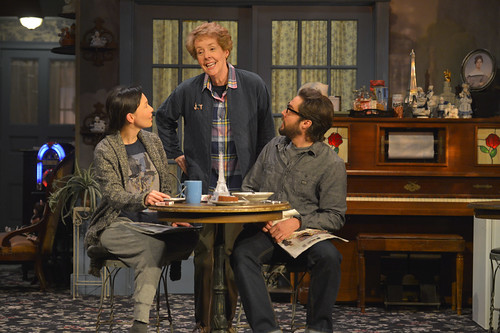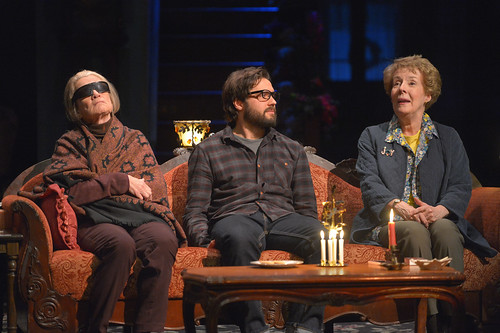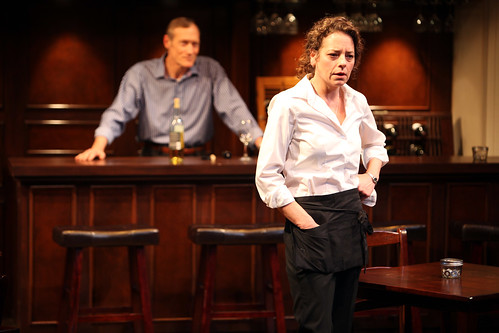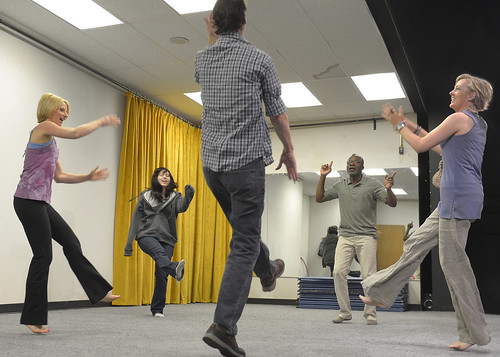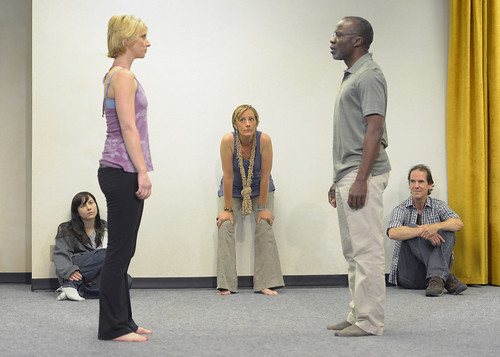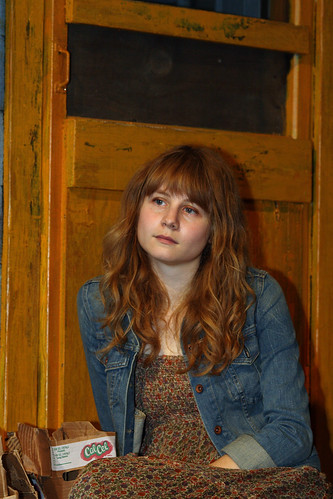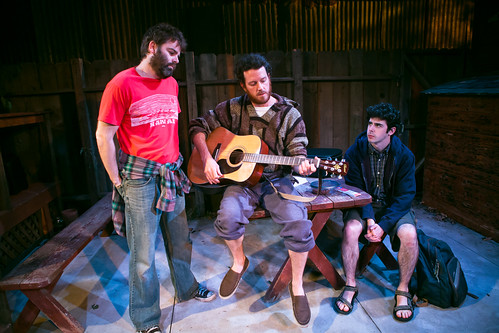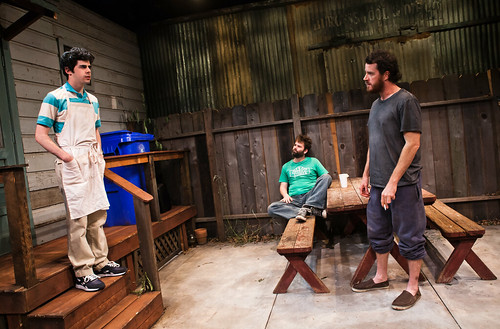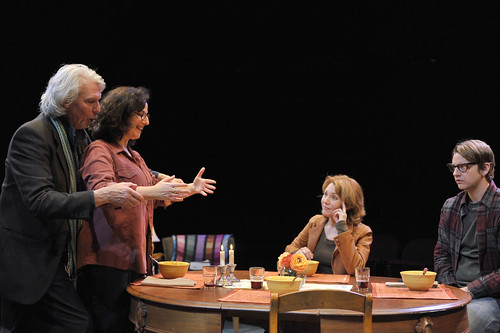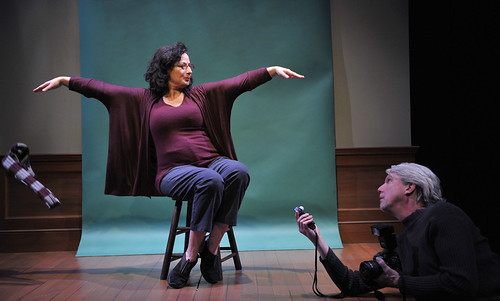If you’re a theater fan, 2017 was a very good year. If you’re an American, depending on your point of view, 2017 was a terrifying year. Quite often, it seemed, the theatrical stage and the national stage were in direct conversation.
In the San Francisco Bay Area, the year was dominated by the juggernaut known as Hamilton, the musical that signaled new hope in diversity, inclusion and making new conversations and new rules even while the country regressed in unfathomable ways. The first touring production of Lin-Manuel Miranda’s Pulitzer- and Tony-award winning musical kicked off at San Francisco’s Orpheum Theatre as part of the SHN season and played to packed houses for five months before heading down to Los Angeles. The show itself was as thrilling and important and satisfying and moving as everyone said, and we couldn’t enter the ticket lottery often enough (let alone win the ticket lottery). [Read my Hamilton review]
It’s hard to compete with the sheer magnitude of Hamilton, but local stages held their own, especially when it came to conversations about race.
My two favorite local productions of 2017 both happened to be directed by Eric Ting, the artistic director of the California Shakespeare Theater, and both happened to attack the issue of race in American in totally different and quite unconventional ways. An Octoroon at Berkeley Repertory Theatre saw playwright Branden Jacobs-Jenkins take an old play and blow it to smithereens as a way to illustrate just how poorly we have dealt with the ramifications of slavery in this country. The play, under Ting’s expert direction, was funny and disturbing and confusing and startling and altogether extraordinary. [Ready my review of An Octoroon]
On his own Cal Shakes turf, Ting turned to Oakland native Marcus Gardley for black odyssey for the year’s most moving theatrical experience. This loose adaptation of Homer translates the “soldier returns” story to the African-American experience and moves through time and history and mortals and gods with poetic ease and powerful impact. Music and dance elevate the emotional level, and the super cast made it all soar. The show was a wonder and needs to be shared, somehow, from coast to coast. Happily, Cal Shakes will remount black odyssey next season (Sept. 25-Oct. 7). Don’t miss it. [Read my review of black odyssey]
On a smaller scale, but with no less emotion, humor and inventiveness, two other local productions told stories of what it means to be black in America. Shotgun Players produced Kimber Lee’s drama brownsville song (b-side for trey), a play that deals with the emotional aftermath of violence and the defiance of hope. [Read my review of brownsville song (b-side for trey)]
And San Francisco Playhouse sparked a blaze in the fall with Robert O’Hara’s wild Barbecue, a play that literally flips race on its ear and has a splendid time doing so (special shout-out to director Margo Hall, who also dazzled as an actor in black odyssey and also managed to stand out in the cast of this production as well). [Read my review of Barbecue]
Another hot topic that received some astute theatrical attention this year is immigration. Crowded Fire Theater and TheatreWorks both tackled the topic with energy and imagination. Crowded Fire’s production of You for Me for Youby Mia Chung blended elements of Alice’s trip down the rabbit hole to illuminate the different experiences of North Korean sisters, one who is stuck in the country and the other who makes it to America. The fantastical and the devastating lived side by side in director M. Graham Smith’s memorable production. [Read my review of You for Me for You]
At TheatreWorks, The Four Immigrants: An American Musical Manga saw local composer Min Kahng turn Henry Yoshitaka Kiyama’s 1931 comic The Four Immigrants Manga into an irresistible musical that, for all its exuberance, still managed to convey the darkness and weight of the immigrant experience. [Read my review of The Four Immigrants]
It was interesting this year that two theaters emerged in San Francisco as homes to a compelling variety of work and became the kind of theater spaces where you pretty much want to check out whatever comes to their stages no matter what you might (or might not) know about the shows themselves. American Conservatory Theater’s The Strand Theatre on Market Street hosted two of my favorite shows of the year – small shows that ACT could never have done so successfully in the much larger Geary Theater. In March, Annie Baker’s fascinating John blended domestic drama and ghost stories into three gloriously offbeat hours with a cast headed by the sublime Georgia Engel. [Read my review of John]
And later in the year at the Strand, another quiet show, Small Mouth Sounds dove underneath the New Age calm to see what drama lies beneath. Comedy ensued in this mostly wordless play by Bess Wohl. [Read my review of Small Mouth Sounds]
Then there’s the Curran Theatre, which used to be a stopping place for Broadway tours but is now, under the stewardship of Carole Shorenstein Hays, something more – a carefully curated collection of extraordinary theatrical experiences. There are the Broadway tours, like the sublime musical perfection of Fun Home [Read my review of Fun Home] but also the experiences you won’t find anywhere else, like Taylor Mac’s overwhelming and gobsmacking and deliriously delightful 24-Decade History of Popular Music.
That’s a pretty dynamic year right there, but I would be remiss not to mention the roaring good time (amid imperfections) of the Broadway-bound Ain’t Too Proud, the Temptations musical at Berkeley Rep [read my review]; Peter Brook’s elegiac and stunning Battlefield at ACT [read my review]; and the deeply moving revival of Paula Vogel’s The Baltimore Waltz at the Magic Theatre. [read my review]
Amid so much that is disturbing in our world, I am heartened by the ever-reliable level of theatrical art-making here in the Bay Area. There’s challenge as well as comfort, belly laughs and punches to the gut (metaphorically speaking of course) and perhaps best of all, real engagement. Not every time, certainly, but often enough that it’s clear our local artists are paying close attention and doing what they can to make change while they entertain.


